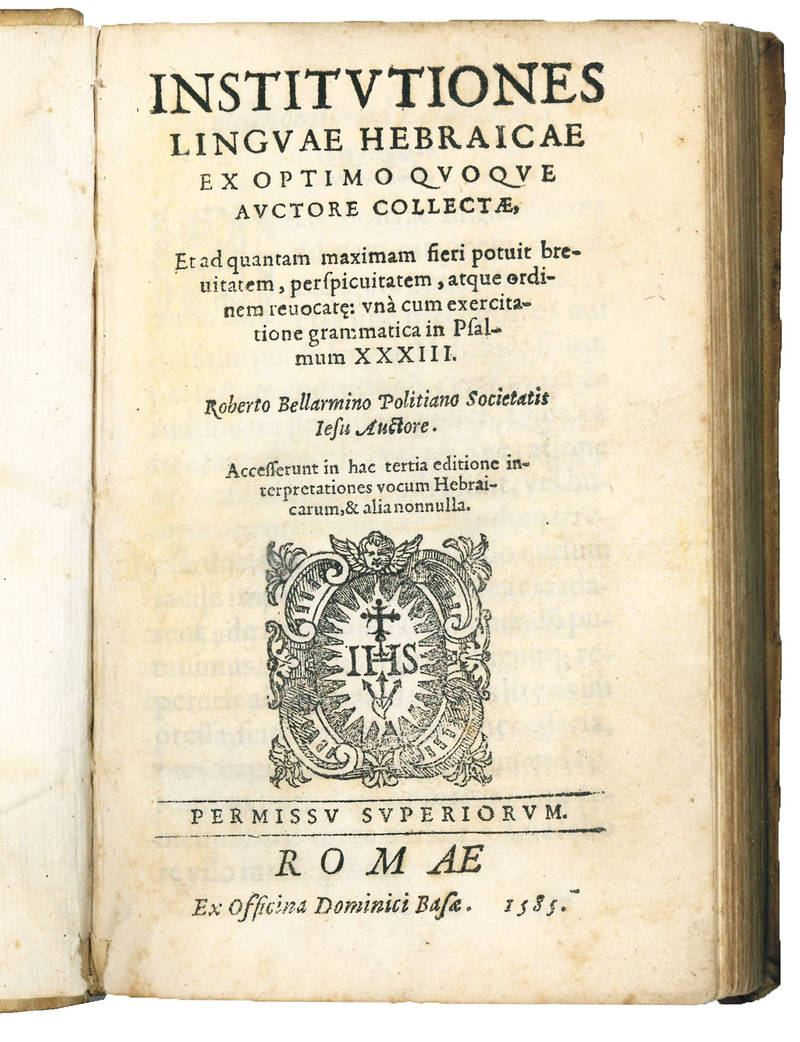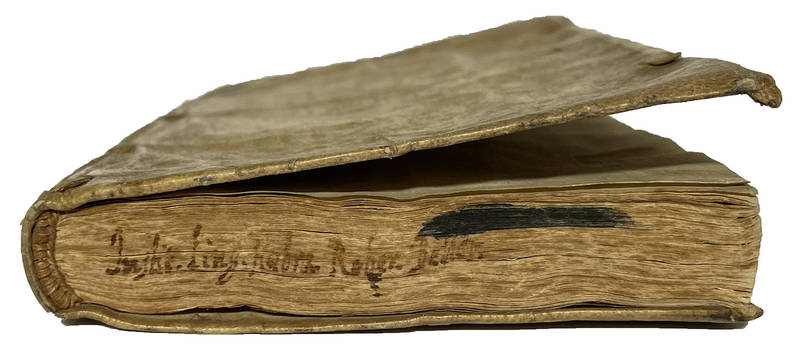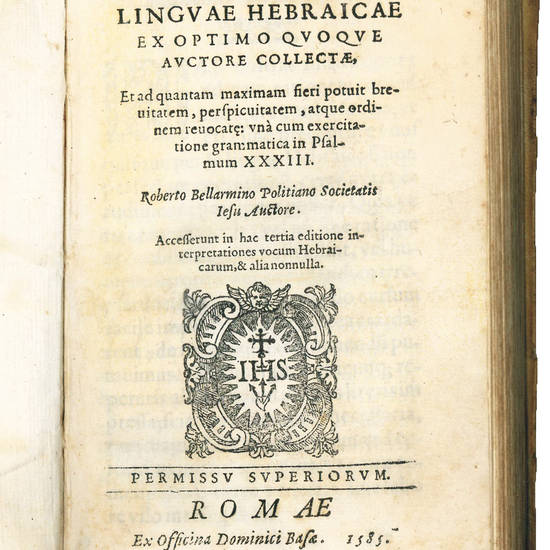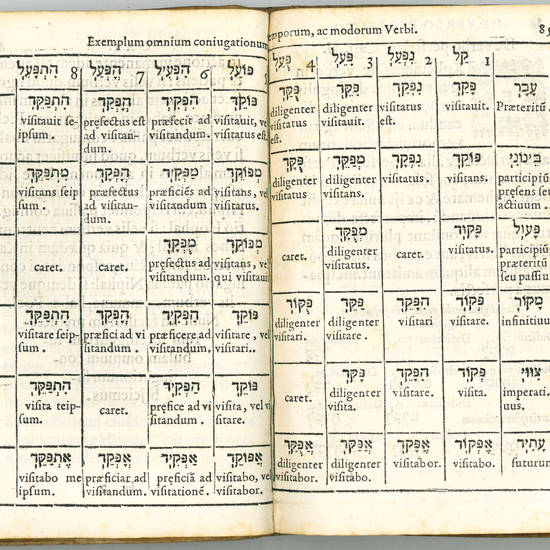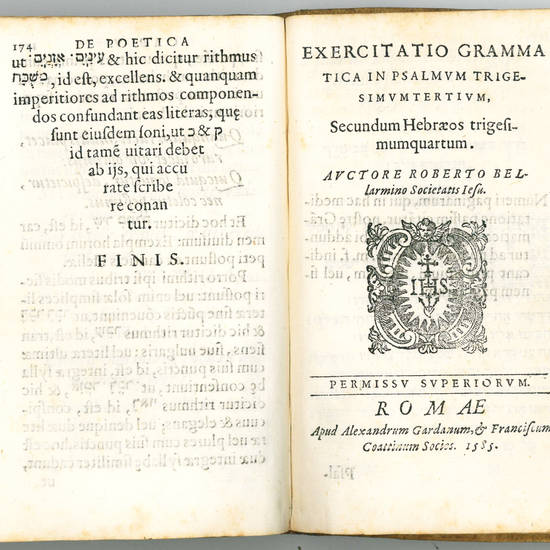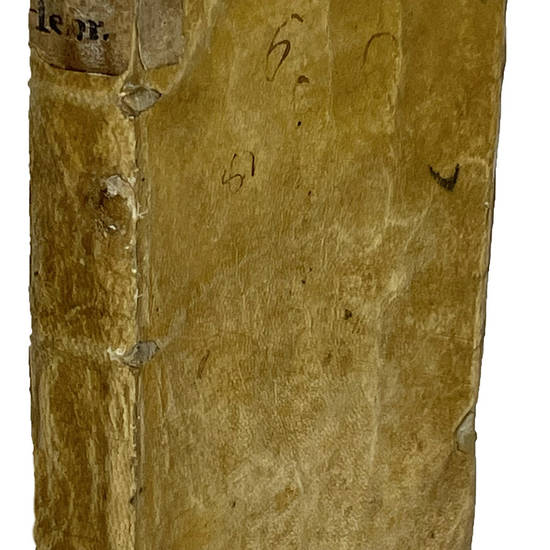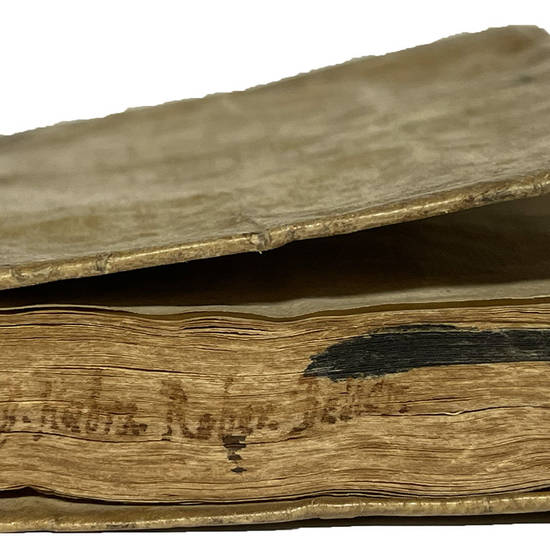Institutiones linguae Hebraicae ex optimo quoque auctore collectae, et ad quantam maximam fieri potuit breuitatem, perspicuitatem, atque ordinem revocatae: unà cum Exercitatione grammatica in Psalmum XXXIII. Roberto Bellarmino Politiano Societatis Iesu auctore. Accesserunt in hac tertia editione interpretationes vocum Hebraicarum, & alia nonnulla
Autore: BELLARMINO, Roberto (1542-1621)
Tipografo: Domenico Basa [for Giacomo Tornieri] (Colophon: Alessandro Gardane & Francesco Coattino [for Giacomo Tornieri]
Dati tipografici: Roma, 1585
8vo (162x103 mm). 229, [3] pp. Collation: A-N8 O12. The Exercitatio grammatica in Psalmum XXXIII begins with a separate title page at l. L8. Roman, italic and Hebrew types. Woodcut emblem of the Society of Jesus on title pages and at the end. Contemporary limp vellum, ink title on spine (soiled, lacking ties). Some marginal foxing, but a good, genuine copy.
Early edition (first 1578) of this very successful introduction into the Hebrew language that was reprinted several times well into the 17th century.
Bellarmino was born at Montepulciano, the son of noble, albeit impoverished, parents. He entered the Roman novitiate in 1560, remaining in Rome for three years. He then went to a Jesuit house at Mondovì, where he learned Greek. The local Jesuit Provincial Superior sent him later to the University of Padua, where Bellarmino began studying systematically theology. In 1569 he was sent to finish his studies at the University of Leuven in Flanders. There he was ordained and became the first Jesuit to teach at the university, remaining in Leuven for seven years. In 1576 he went back to Italy. In Rome he was commissioned by Pope Gregory XIII to lecture on theology in the new Roman College. In 1589 he followed as theologian Enrico Caetani, who had been sent to Paris as Papal legate. In 1592 he was made rector of the Roman College and in 1599 cardinal. As Cardinal Inquisitor, he was one of the judges at the trial of Giordano Bruno. In 1602 he was made archbishop of Capua. In 1616, Bellarmino notified Galileo of a forthcoming decree of the Congregation of the Index condemning the Copernican doctrine, and ordered him to abandon it. Elected bishop of Montepulciano in his old age, he died in Rome in 1621.
Edit 16, CNCE31617; De Backer-Sommervogel, I, col. 1151.
[11087]

